Today’s Saturday’s Pick Spotlight
Illuminates the Work of Author Patty Slack
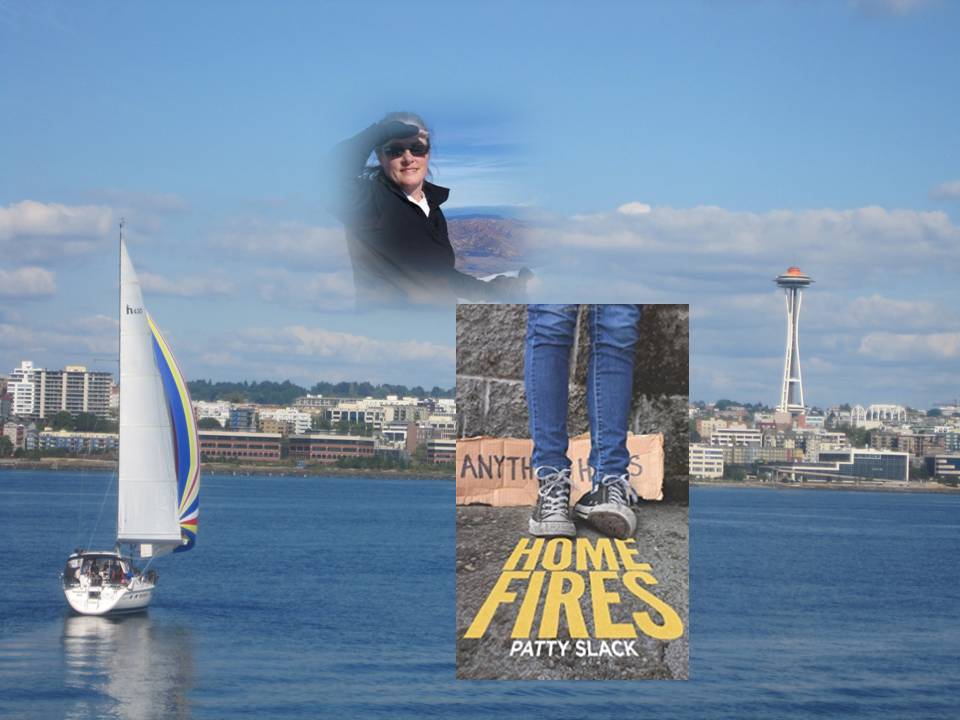
I’m delighted to introduce Author Patty Slack today. Her spirit of compassion and understanding will open the world to you in her writings. She will capture your heart with her Christian approach to her stories and an added emphasis on family life and friendships.
Patty Slack hopes her stories transport you to places you’ve never been. From the hills of Pennsylvania Coal Country (Closing the Gap) to the farmlands of West Africa (Saving Sorrow) to the Inside Passage of wild Alaska (True North). Patty hopes to take you on a journey.
Her love of travel and fascination with all kinds of people has exposed her to varied and fascinating cultures.
Patty and her family find themselves at home in the beautiful Pacific Northwest. She hikes in the Columbia River Gorge and enjoys a perfect climate for growing fruits and vegetables, which more than makes up for the long drizzly winter.
Let’s get right to the Interview!
“Home Fires” is about a young woman who encounters a homeless man soon after losing her only child.
Will she find herself in serving others, or will the pressure from a community who wants to keep the homeless out of the spotlight destroy the soup kitchen she has started to restore her passion in life?
Patty, I served in the soup kitchen of a church in Minneapolis. The experience was one of the best lessons my children ever learned in life. Your character, Cyndi, is struggling with both her emotions and those of her community in her efforts. Have you ever met resistance in your efforts to serve others?
I wrote this book soon after moving back to the States from Africa. The real struggle for me was “how do I love my next door neighbor who is spoiled when there are other people I can serve who need what I have to offer?” So, you can see, my heart wasn’t exactly in the right place. I tabled the book for years and came back to it when I was more able to look at people as people, no matter which side of the tracks or the ocean they’re on. I’m a work in progress on that.
As far as resistance, I can’t say I’ve ever been in the kind of battle where you risk everything for the sake of serving. I’m blessed to live in a part of the country where people are at least asking the questions of what we can do even if we don’t have the answers.
How difficult was it to provide a new direction in Cyndi’s life after losing a child, which is every woman’s worst fear?
I thank God I’ve never experienced the painful loss of a child, but I’m not a stranger to loss. We never know how grief will hit us. For some, it paralyzes. For others, it acts as a catalyst. It takes such courage to pick up the pieces of your life after you’ve lost a child, even if that child was an adult. It is naïve of me to say, “Just get a project to work on, and you’ll feel all better.” Still, for me, reaching outside my grief to serve and love other people leads to a faster and fuller healing. That’s what I wanted to offer Cyndi.
Is there a lesson you want the readers to learn from Cyndi’s struggle?
The story is more important than the moral of the story. If someone reads Home Fires and walks away with the desire to do something to make the world better, I’d be thrilled with that. But I’d be equally thrilled if someone read the book and said, “I have more questions than answers now.” Often, sitting in the questions does a more powerful work in us than action and answers.
When Home Fires was first released, you donated a portion of the sales to the homeless. What a beautiful gesture! Can you share what you are personally doing to help the homeless?
Honestly, it’s a struggle for me. How do you help in ways that make a lasting difference? There is so much we need to do. The churches in our area take turns running the winter overflow to house and feed families who can’t find a spot in the regular shelters. Spending an occasional night there, it strikes me how much stress these families experience. No privacy. No beds. Just a mattress on the floor in a gym and a folding chair to protect their stuff.
I have many friends who are proactive in engaging in life and conversation with some of our city’s homeless people. Every person has a story. Every person has value. Just learning to see them as people instead of problems is a good first step.
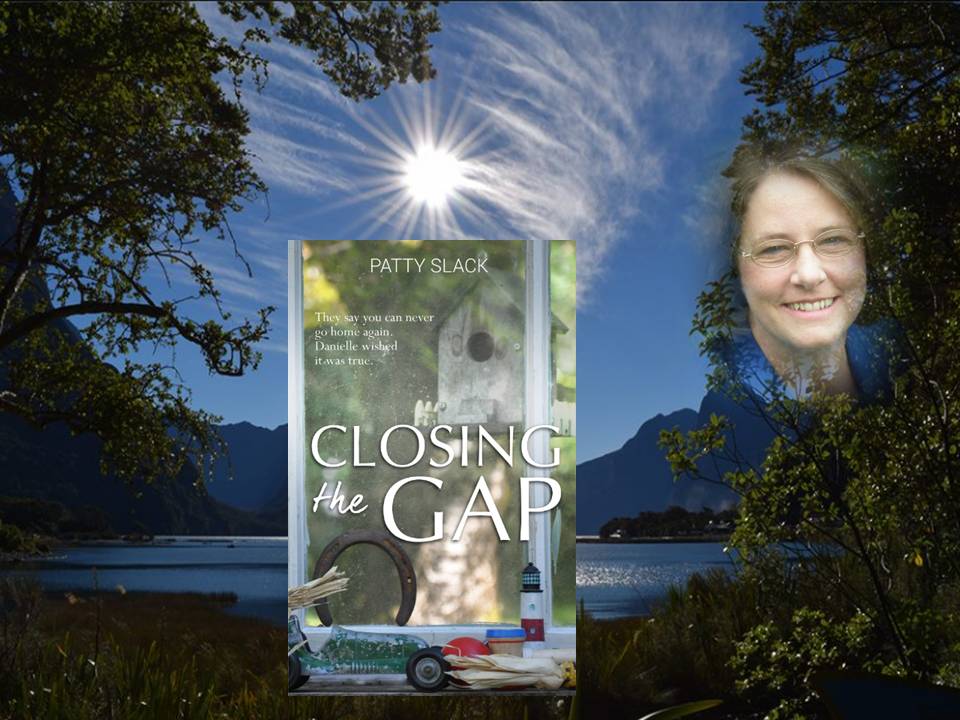
Closing the Gap is a beautiful story about a young woman who must return to her hometown to help save her mother from a decades-old underground coal fire threatening to destroy her hometown of Tipples Gap. Danielle must go home to accomplish the impossible. Her mother, a hoarder who cannot bear to leave her precious belongings behind, has to move before her house burns down. Danielle is the only one who can make her do it.
She has steeled herself to face the emotions returning to her childhood home will surface but is surprised by the feelings that arise when she runs into her high school flame, Isaac, the only law enforcer left in the dying town.
Patty, my grandfather’s family homesteaded in coal country, and my mother sent care packages each winter to help the families struggling to survive. Coal mining is certainly one of the topics the American public has recently discussed. What caused you to write a book with a coal country background?
Hard working people are the backbone of the United States, but we have too frequently forgotten that way of life. When I first heard about underground fires burning for decades or even longer along anthracite coal veins, they captured my imagination. Put that unstoppable force up against an immovable object (Who could be more immovable than a hoarder?), and I knew I had a story.
Danielle’s mother is a character that we all must deal with in some way during our lifetimes. I know how difficult it was to dismantle my mother’s home and later her sister’s. What suggestions do you have for our readers who are facing the same problem: Getting an older relative to leave the safety and sanctuary they have believed in for their entire adult lives?
It’s one of the hardest things we face in life, the decline of our parents if we are blessed for them to live so long. It’s hard to make the transition from the parent making the decisions to the child deciding for them. Advice? I always try to imagine myself in the other person’s skin. How does it feel to have a decision forced on you? Even if the decision is reluctantly made, a little empathy goes a long way.

A shipwreck…
A mystery…
And the search for hidden treasure.
Twelve-year-old Shelby is looking for adventure. When the shiny object she finds frozen in a chunk of glacier ice hints at the hidden treasure, she and her brother Cole rush to follow the clue. But they are not the only ones on the trail. Fighting the real dangers of Alaska’s wilderness, they race to find the treasure before the man in the brown rubber boots gets it (or them).
We spent time in Alaska and saw the glaciers. That’s pretty rough terrain for two kids to manage. So, how did your adventurous spirit lend itself to this delightful story?
All of my stories have an autobiographical element to them—not that I ever lived in coal country or that my mother was a hoarder (she wasn’t!)—but this story and the following stories in the series about Shelby and Cole are a trip back to my childhood. I spent all my growing up years in Southeast Alaska, hiking the trails in and around Juneau, swimming in the glacier lake, spotting bears in the wild and in the garbage can.
Admittedly, Shelby and Cole are more apt to find themselves in trouble since their thirst for adventure far outweighs their caution. The next two stories of their summer in Alaska are due to release in Spring 2017.
 Your reviewers stated that this book truly kept them entertained: I couldn’t put True North down and found myself sneaking time from my family to read it. It is fun and fast-paced. The setting is in my hometown of Juneau, Alaska and I appreciated that most of the places the characters visited were real and accurate. It kept the story grounded in the history of our area. How did your children reflect on the characters of Shelby and her brother?
Your reviewers stated that this book truly kept them entertained: I couldn’t put True North down and found myself sneaking time from my family to read it. It is fun and fast-paced. The setting is in my hometown of Juneau, Alaska and I appreciated that most of the places the characters visited were real and accurate. It kept the story grounded in the history of our area. How did your children reflect on the characters of Shelby and her brother?
I drew this story from my childhood more than from raising my kids. I can still hear Mom’s voice in my head telling me to keep singing so the bears wouldn’t be startled. There was never any danger of a bear being surprised by our rowdy clan!
It helps when writing young characters to have young people in your life, though, and I’m so thankful for all my daughters and the reminders they frequently offered of what was cool and epic and what was lame.
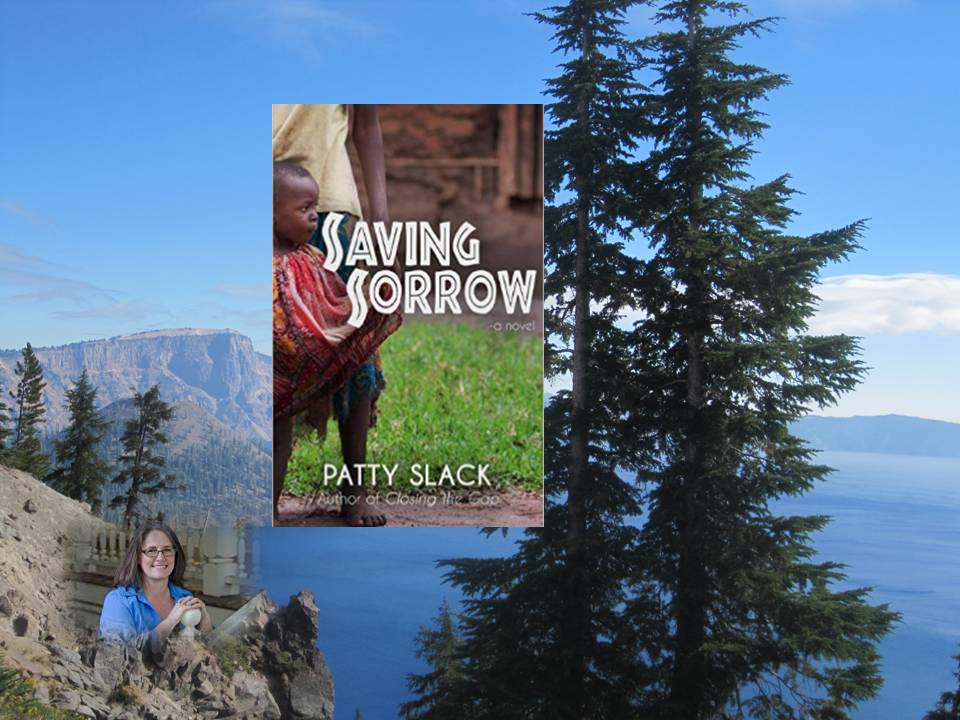
Cassie moved halfway around the world to find the place she felt at home. Using her experience in the Peace Corps, she plans to help the people of her small African village of Babakondji through micro-finance and education. When a hydroelectric project threatens her village, she determines to fight on behalf of those she loves. But how can she protect her friends when they don’t even seem to realize they need protecting? And what does it mean to belong to a place that may no longer exist?
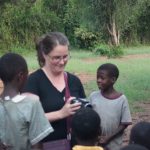
I had so many friends who joined the Peace Corps in the 60’s. You’ve traveled in Africa. What are some of the primary problems facing the people there?
Africa is a land of contrasts. Some of the richest citizens in the world—and many of the poorest—live on this continent that has captured my heart. In the rural Africa, I describe in Saving Sorrow, some of the biggest needs are for clean water, education, and accessible health care. On a deeper level, people need to experience hope and to know that they have the tools they need to provide for themselves and their families.
What suggestions can you make to help us know where our efforts are most needed?
Regarding immediate need, I would point people to the following places:
ILAD-(https://ilad.ngo/) International Literacy and Development, providing literacy training and farming practices to improve the standard of living for families in Togo, West Africa
Charity Water or Just Hope International to help provide clean water to people who don’t have it
Vancouver Church of Christ Winter and Spring of 2017 only)—providing famine relief for people suffering in the Isingiro region of Uganda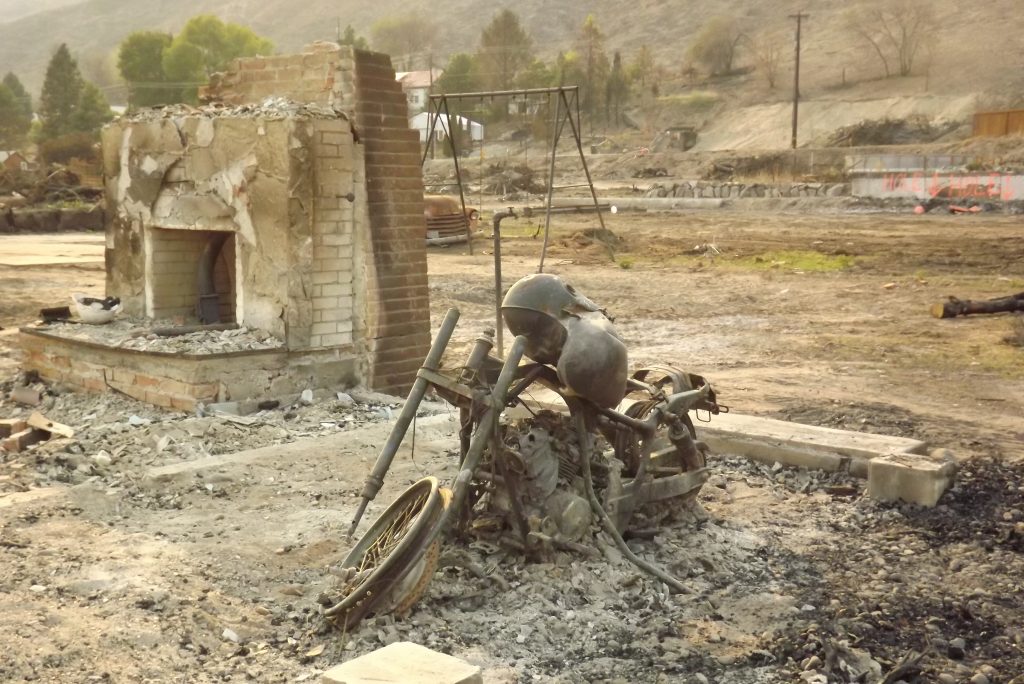
If you could do one thing to help people like Cassie’s village, what would it be?
One thing? That’s a tough one because it depends on the person in that village that you’re trying to help. I’m excited about what ILAD is doing
because it is not giving handouts but is teaching life skills that can change a family’s history by offering the tools of knowledge.
If you could spend one month working in a place that desperately needs help today, where would it be and which of your characters would you take with you, knowing the two of you could make a difference?
If I could hop on a plane to Togo tomorrow, I would do it in a heartbeat. As to which character I would take, I’d choose Cyndi. Cassie already lives in the area and would be happy to pop over and see us. Cyndi has the heart to help people, but it limited by her limited understanding of the world. If I could expose her to another place and different kinds of needs, it could change her life.
Thank you, Patty, for joining us here today. You have blessed us with your spirit of giving. We look forward to hearing more about your next adventure and the books you’ll be inspired to write.
You Can Connect With Patty Slack Here: